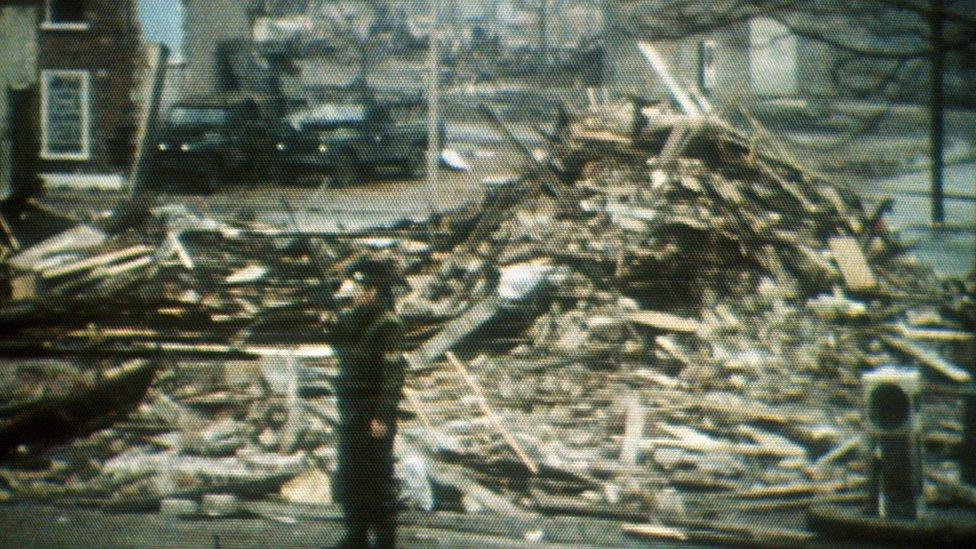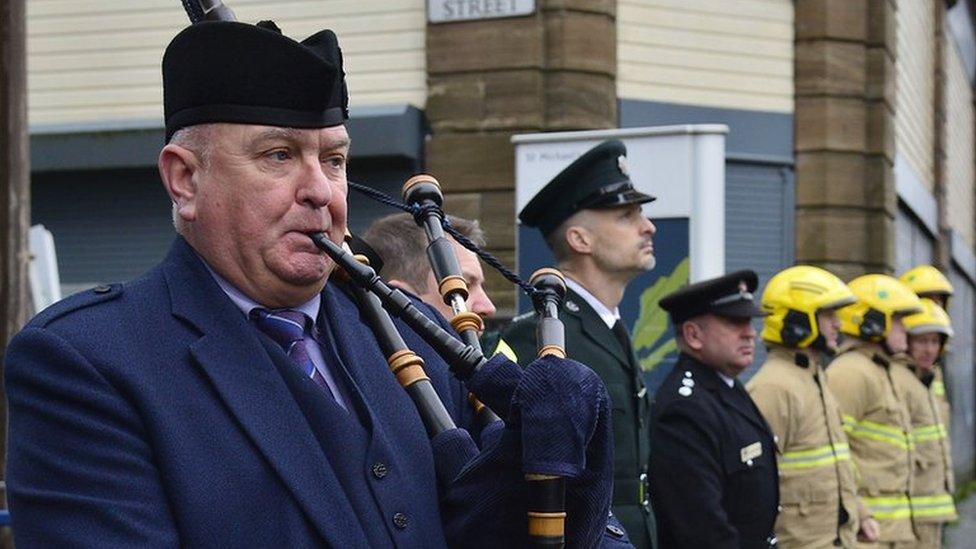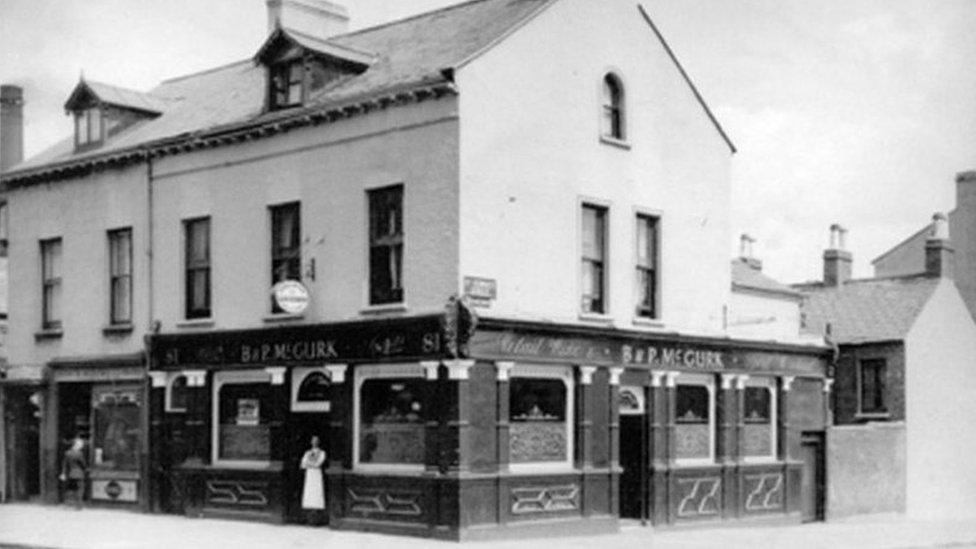McGurk's Bar bomb report findings now irrational, police say
- Published

Fifteen people were murdered when the north Belfast pub was blown up by loyalists in 1971
The Police Service of Northern Ireland (PSNI) now feels it is irrational to accept the findings of a report into the McGurk's Bar bomb atrocity, a court has been told.
The move will now see the report changed or completely scrapped.
Fifteen people were murdered when the north Belfast pub was blown up by loyalists in 1971.
But at the time police wrongly briefed politicians and the public that the attack had been an IRA "own goal".
In 2011, the police ombudsman identified investigative bias in how the Royal Ulster Constabulary (RUC) handled the case.
The watchdog concluded that detectives failed to properly probe loyalist paramilitary responsibility because they were so focused on the mistaken view that the IRA was to blame.
But a later report carried out by the PSNI's now defunct Historical Enquiries Team (HET) reached a different verdict.
It claimed there was no evidence of any bias on the part of the RUC investigators.
Those findings have been challenged on behalf of the bereaved families by Brigid Irvine, whose mother Kathleen was among those killed.
As a hearing began on Thursday, the court heard legal papers had been lodged on behalf of the PSNI earlier this week.
Mr Justice Humphreys told counsel for the victims' relatives: "It might be thought through slightly gritted teeth, but nonetheless it seems there's a concession that the finding in the original HET report that there was no investigative bias is irrational and contrary to the weight of the evidence.
"Therefore, your application for judicial review succeeds."
Submissions then centred on whether the report should be edited or completely scrapped.
Welcoming the PSNI's concession, Mr Justice Humphreys praised the determination of the families.
'Element of success'
He told their lawyer: "Your clients have achieved part of what they wanted, which is the admission now made in open court by the chief constable that those findings simply cannot be stood over, and that represents an element of success."
Although it was made clear that the full version of the report cannot remain, proceedings were adjourned for a month to give both sides time to discuss a possible solution.
"At the moment I'm being invited to do one of two things: the nuclear option, which is to quash the entire report; or secondly agree with the proposed redactions/excisions," the judge pointed out.
"I do think there's an opportunity to see if some resolution can be reached."
Related topics
- Published11 December 2021

- Published12 December 2021
